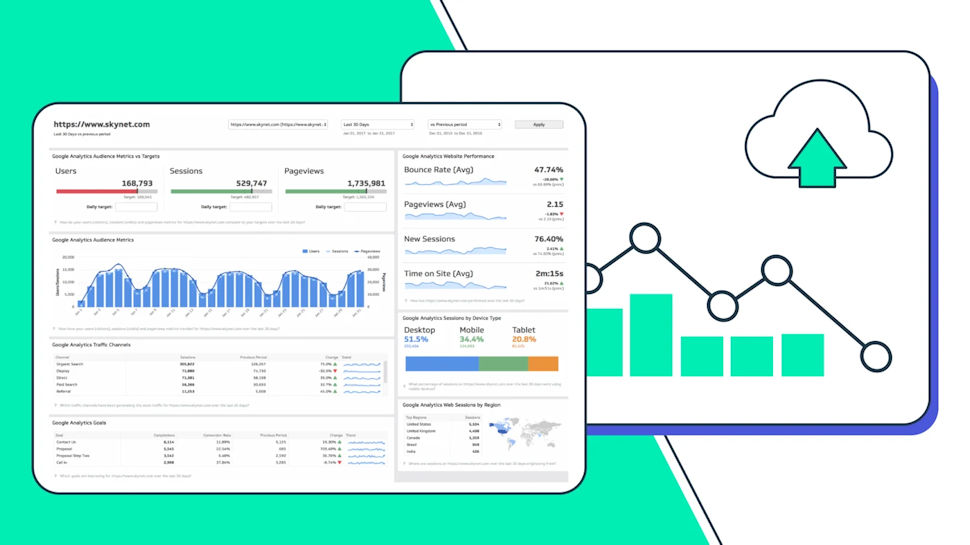Sponsored by Soax
5 things to look for when choosing a proxy service
Selecting the right proxy service for a business goes beyond basic privacy

Proxy services for businesses differ quite a bit when compared to their individual-minded use, as they need to go far beyond personal privacy or simple web access.
In a way, the main difference from consumer’s personal use, where it’s more of a convenience than anything else, is the fact that enterprises rely on a proxy service for tasks such as data gathering, cybersecurity, and access control.
But what makes a good one stand out from the rest isn’t easy to discern. Security, reliability, performance, and many other factors play a role here.
To help out businesses of all shapes and sizes, we decided to present the five most important things to keep in mind when choosing a proxy service. In no particular order:
Reader offer: First 500 activations get 25% off on Soax
Soax is a proxy service offering residential and mobile proxies with precise geo-targeting, unlimited concurrent sessions, and a rotating IP network. Businesses can benefit from tasks like web scraping, ad verification, market research, and data aggregation at scale. We have an exclusive code for Tech Radar readers—the first 500 activations can use code TECHRADAR25 to get 25% off.
1. Customer support
No matter how the service operates or how good it is, technical issues can always happen due to a number of reasons. In case of a hiccup or a more serious issue, businesses need quick solutions, and great customer support will help immensely.
Fast response SLAs (service-level agreement), dedicated support teams, account managers, or simply all-around knowledgeable support teams (that are available through multiple time zones) are great signs of a top-notch customer service. 24/7 support is essential, preferably via phone or video conferencing.
A reliable support will reduce potential downtime and protect the most important business operations. If you want another angle, let’s just say that an enterprise can’t afford to have a proxy service with flimsy support.
Sign up to the TechRadar Pro newsletter to get all the top news, opinion, features and guidance your business needs to succeed!
2. Security
This one might be a no-brainer, but not all proxy services are equal when it comes to protective measures or features. One must, and we repeat, must offer strong security to shield sensitive data and prevent any unauthorized access or leaks. Cheaping out on security will sooner or later lead to breaches, compliance fines, data loss, and other bad things.
As such, businesses should look for providers that support both HTTPS and SOCKS5 protocols (although most should already have this in 2025), employ data encryption in transit, have IP whitelisting and authentication mechanisms, and enterprise-grade security in general.
This goes without saying, but an absolute essential is an offering of ethically sourced IPs, in addition to compliance with regulations such as GDPR, HIPAA, or SOC 2 if handling personal or financial data.

3. High uptime and performance
Everybody likes speed, at least when it comes to technology. When it comes to proxy services, it’s a very important part, as the saying ‘time is money’ really comes into play here.
Take data collection as an example. If a business uses a quick residential IP and it gets blocked for some reason, it may happen that the next IP in line is slower than the previous one.
With that in mind, picking a speedy data center proxy will help with rapid data processing. Having a high uptime and good performance across the board will do wonders for user experience, automation, and data collection accuracy.
Hence, over 99.9% uptime SLA is mandatory. Then, check that low-latency connections, load-balancing across IPs, and 24/7 infrastructure monitoring are part of the package as well.
4. IP pool diversity and scalability
This will largely depend on the type of organization, as it will vary in importance for some. Still, having a solid IP pool is never a bad thing, as businesses often demand access to large volumes of geographically diverse IP addresses, mostly for things like market intelligence and web scraping, brand monitoring, ad verification, and SEO tracking across regions.
Again, this depends on the business type, but it’s always a good idea to have a proxy provider that offers large and clean IP pools, be it residential, datacenter, or mobile. Bonus points go to IP rotational capabilities or a good global location coverage in total.
All in all, scalability in a proxy service will make sure that businesses can handle growth without hitting roadblocks in performance or experiencing legal issues from blocked IPs.

5. Tools and features
A good proxy service will have a few features and tools here and there, but an exceptional one will try to cover all the bases. Typically, this includes management, reporting, integration, and any other tools that might benefit a business and its team.
A proxy service that offers the means and APIs that make management easier for IT and development teams is worth taking a closer look at.
So, features such as user-friendly dashboards, API access for integration into company tools or workflows, detailed logs and usage reports, and even multi-user access and role-based controls are all welcome options for enterprises. Having an easily manageable service will save time - it’s as simple as that.
If there are any “bonus” features, all the better. For example, some have browser extensions that help employees browse safely and securely.
Also, for more precise localization, a number of proxies have more sophisticated geo-targeting capabilities than others.
Final thoughts
While there are other factors to look out for in a proxy service for your enterprise, these cover most of the bases. It’s also important to avoid free proxy services. Those might be passable for consumers and individual use, but not for serious businesses. They often neglect security protocols or aren’t that transparent regarding their proxy acquisition methods. On top of everything, they tend to be slow and will impede the day-to-day company doings.
Additionally, depending on the targeted geo-location, IP addresses from a specific country could be a necessity, so that’s another matter to pay attention to.
In today’s market, there is an abundance of proxy services, catering to all kinds of business needs. Choosing the right one can be a daunting task, as the top services are very similar in what they bring to the table.
Picking the one that’s best suited will depend on particular needs and demands, and to a point, the budget. Certain proxy services can be on the pricier side, which usually means they offer a premium service, although that doesn’t always have to be the case.
Businesses should do their due diligence, evaluate their needs thoroughly, and pick the best solution based on all those metrics.
Sead is a seasoned freelance journalist based in Sarajevo, Bosnia and Herzegovina. He writes about IT (cloud, IoT, 5G, VPN) and cybersecurity (ransomware, data breaches, laws and regulations). In his career, spanning more than a decade, he’s written for numerous media outlets, including Al Jazeera Balkans. He’s also held several modules on content writing for Represent Communications.
